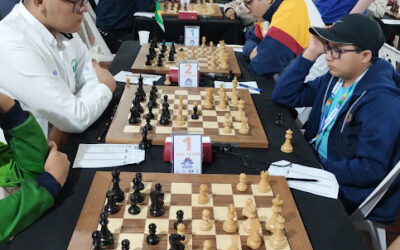Por Leandro Shara (Chile) – leandro.shara@matchvision.net
SANTIAGO DE CHILE, 10 de marzo de 2020.- ¿Se cancelarán los Juegos Olímpicos de Tokio 2020 debido al Coronavirus? Se cancelará la EURO 2020, y qué sucederá con la Copa América, la Copa Libertadores, etc. En un mundo de blanco y negro, bueno y malo, las únicas soluciones a la crisis actual son jugar según lo planeado, pero sin fanáticos, o cancelar todo.
Sin embargo, la necesidad es la madre de todos los inventos, y entre estos escenarios de apocalipsis y los escenarios comerciales habituales, hay mucho espacio para los planes de continuidad comercial y el mundo del deporte debería estar abierto al cambio y ser ágil si quiere sobrevivir a esta crisis con el menor daño posible.
Estas soluciones intermedias se basan en cambios en los formatos y horarios de la competencia. Los puristas dirían: «no puedes cambiar las reglas después de empezar», pero las reglas ya han cambiado, nos guste o no, y jugar a puerta cerrada para mantener las regulaciones es como hundirse y morir en el intento por devolverse a sacar la maleta de viaje antes de hundirse.
Sin mencionar el hecho de que estos partidos internacionales, incluso a puertas cerradas, están ayudando a que el virus se propague, a través de periodistas, personal e incluso jugadores: es completamente irresponsable gobernar y hablar sobre la transmisión y los contratos comerciales y poner en peligro a comunidades enteras por mantenerlos.
Tal como están las cosas, todas las actividades deportivas deberían detenerse en Europa, en Asia y en América y en el mundo entero. No significa cancelar todo, pero todos deben ser flexibles y comprender la situación: los órganos de gobierno, los organismos de radiodifusión y los patrocinadores. ¿Y después qué?
Tokio 2020 debería trasladarse a octubre, similar a los Juegos Olímpicos de 1964 celebrados allí. El número de atletas también debería estar más cerca de los 5.151 que participaron en 1964 que de los 11.091 planeados para participar este año. La economía japonesa (como la economía global en su conjunto) está sufriendo un golpe devastador, y pedirle a Japón que organice los segundos juegos más grandes es inviable.
En lugar de reducir las disciplinas, consideraría cambiar el formato de cada evento y reducir el número de participantes, especialmente en los deportes de equipo. Por ejemplo, poner un límite de 10 equipos en todos los eventos. En algunos casos, el proceso de calificación no se ha completado, y las Federaciones Internacionales podrían decidir si jugarán con el número de equipos ya clasificados o si llenarán los 10 lugares. En otros casos, la decisión sería más difícil, donde un equipo calificado tendría que ser «descalificado» debido a esta reducción: tiene un costo en la integridad deportiva, pero el COI debería considerar pagar por seguir teniendo grandes Juegos Olímpicos. El formato de cada competencia debe ser innovador y maximizar el número de partidos por equipo mientras se hace lo más corto posible.
La UEFA y CONMEBOL deberían presentar un plan similar. La Copa América Colombia / Argentina 2020 debe ser reducida con cambio de formato. La EURO 2020 tiene 20 equipos clasificados, con 4 puestos que se otorgarán en los partidos de playoffs que se jugarán en dos semanas. La FIFA y la AFC ya pospusieron los partidos asiáticos programados para las mismas fechas, y con el Coronavirus extendiéndose más rápido en Europa que en Asia, sería irresponsable jugar estos partidos en marzo, y aunque cortar el EURO a 20 equipos es la opción más lógica, con o sin reprogramación. Esto se podría en 3 fechas en la primera ronda (como hoy), o reduciéndolo aún más a 2 fechas, usando un formato de competencia innovador en lugar de grupos tradicionales, igualmente para Copa América 2020.
En la Euro, también sugeriría eliminar la Ronda de 16, acortar aún más la duración del torneo de 31 a 20 días, reducir la carga económica para los anfitriones y la UEFA, así como facilitar la búsqueda de soluciones para todo el calendario de fútbol europeo para 2019-2020 y 2020-21. De hecho, la UEFA debería considerar extender la temporada 2019-2020 hasta noviembre, jugar el EURO en el intervalo de tiempo de Qatar 2022, y tal vez incluso cambiar a las temporadas de enero a noviembre para 2021 y 2022, resolviendo la «Copa Mundial 2022 en medio del problema de temporada «.
Las cosas son peores para la ATP y la WTA. La cancelación del BCP Paribas Open 2020, más conocido como Indian Wells, cuando todos los atletas ya se estaban preparando para el torneo en California, fue devastador. Dado a que el tenis es probablemente el deporte que más viaja, se necesita hacer un cambio completo en el calendario y en el formato rápidamente, de lo contrario, el costo sería demasiado pesado para los atletas y los organizadores de eventos por igual. Ambos organismos deberían convocar a una reunión de emergencia (tal vez a través de una conferencia web) y votar para reducir el número de jugadores en cada torneo en un 25% a 50%, cambiando el formato de eliminación directa a uno que permita a los jugadores jugar más y viajar menos (no más «un partido y fuera»), cancelando algunos de los torneos del año y otra vez, extendiendo la temporada en varios meses, permitiendo que los torneos se pospongan, tal vez incluso el Roland Garros y Wimbledon.
Estos son tiempos difíciles donde la voz de «cancelar todo» es la más escuchada, y por otro lado, algunos organizadores ponen sus cabezas para ser cortadas e intentan jugar de la manera habitual (o peor, programar las cosas de la forma normal y luego cancelar o jugar sin público). Hay una vía intermedia que requerirá una mente abierta por parte de las federaciones, que ayudará al deporte a salir de esta crisis más fuerte de los últimos tiempos.
——
ENGLISH:
CORONAVIRUS: Can the world of sports finally be flexible and innovative – when its survival is at stake?
By Leandro Shara (Chile) – leandro.shara@matchvision.net
SANTIAGO, Chile, March 10, 2020.- Will the 2020 Summer Olympic Games get canceled due to Coronavirus is the biggest question in sports today. The second biggest – will the 2020 EURO get canceled, and what happen with Copa America, Copa Libertadores and so on. In a world of black and white, good and bad, the only solutions to the current crisis are to play as planned but without fans, or to cancel everything.
However, necessity is the mother of every invention and between these apocalypse scenarios and business as usual scenarios, there is a lot of room for business continuity plans and the sports world should be open to change and agile if it wants to survive this crisis with the least damage.
These middle solutions relay on changing competition formats and schedules. The purists would say – “you can’t change the rules after you start”, but the rules have already changed whether we like it or not, and to play behind closed doors in order to keep regulations is like sinking with the ship because you need to take out the toilet paper from all toilets before abandoning them.
Let alone the fact that these international matches even behind closed doors are helping the virus to spread, through journalists, staff and even players – it’s completely irresponsible of governing to speak about broadcasting and commercial contracts and jeopardizing entire communities for the sake of keeping them.
As things stand all sports activities should halt in Europe, maybe the world. It doesn’t mean canceling everything but everyone should be flexible and understand the situation – governing bodies, broadcasters, and sponsors. And afterward?
Tokyo 2020 should be moved October, similar to the 1964 Olympics held there. The number of athletes should also be closer to the 5151 that participated in 1964 than to the 11,091 planned to participate this year. The Japanese economy (as the global economy as a whole) is taking a devastating hit, and to ask Japan to host the second-largest games is inviable.
Instead of cutting disciplines, I would look at changing the format of each event and cutting the number of participants, especially in team sports. For example, putting a limit of 10 teams on all events. In some cases, the qualification process hasn’t been completed, and the International Federations could decide if to play with the number of teams already qualified or to fill the 10 spots. In other cases the decision would be harder, where a qualified team would need to be “disqualified” due to this reduction – it has a toll on sport integrity, but the IOC should consider paying for still having great Olympic Games. The format of each competition should be innovative and maximize the number of matches per team while doing it as short as possible.
A similar plan should be put forward by UEFA. EURO 2020 currently has 20 teams qualified, with 4 spots to be given in playoff matches scheduled to be played in two weeks. FIFA and the AFC already postponed the Asian matches scheduled for the same dates, and with the Coronavirus spreading faster in Europe than in Asia, it would be irresponsible to play these matches in March, and while I’m from a country scheduled to play in the playoffs, cutting the EURO to 20 teams is the most logical option, with or without rescheduling it. This could be played with either 3 matchdays in the first round (as today), or further reducing to 2 matchdays using an innovative competition format instead of traditional groups.
I would also suggest eliminating the Round-of-16, cutting further the length of the tournament from 31 to 20 days, reducing the economic burden on hosts and UEFA, as well as making it easier to find solutions for the whole European football schedule for 2019-2020 and 2020-21. In fact, UEFA should consider extending the 2019-2020 season until November, playing the EURO on the Qatar 2022 timeslot – and perhaps even changing to January-November seasons for 2021 and 2022, solving the “2022 World-Cup in the middle of the season” problem.
Things are worse for the ATP and the WTA. The cancellation of the 2020 BCP Paribas Open, better known as the Indian Wells, when all the athletes are already in California preparing for the tournament, was a devastating hit. With tennis probably being the sport that travels most, a complete change in calendar and format needs to be done quickly, otherwise, the toll would be too heavy on athletes and events organizers alike. Both bodies should call on an emergency meeting (maybe over a web conference) and vote on cutting the number of players in each tournament by 25% to 50%, changing the format from direct elimination to one that allows players to play more and travel less (no more “one-and-out”), canceling some of the tournaments of the year and again, extending the season in several months, allowing tournaments to be postponed – maybe even the Roland Garros and Wimbledon.
These are difficult times where the “cancel everything” voice is the most heard, and on the other hand some organizers put their heads in the sand and try to play as normal (or worse, schedule things as normal then cancel or play without fans). There’s a middle way that will require an open mind from federations but will help the sport to come out of this crisis stronger.



